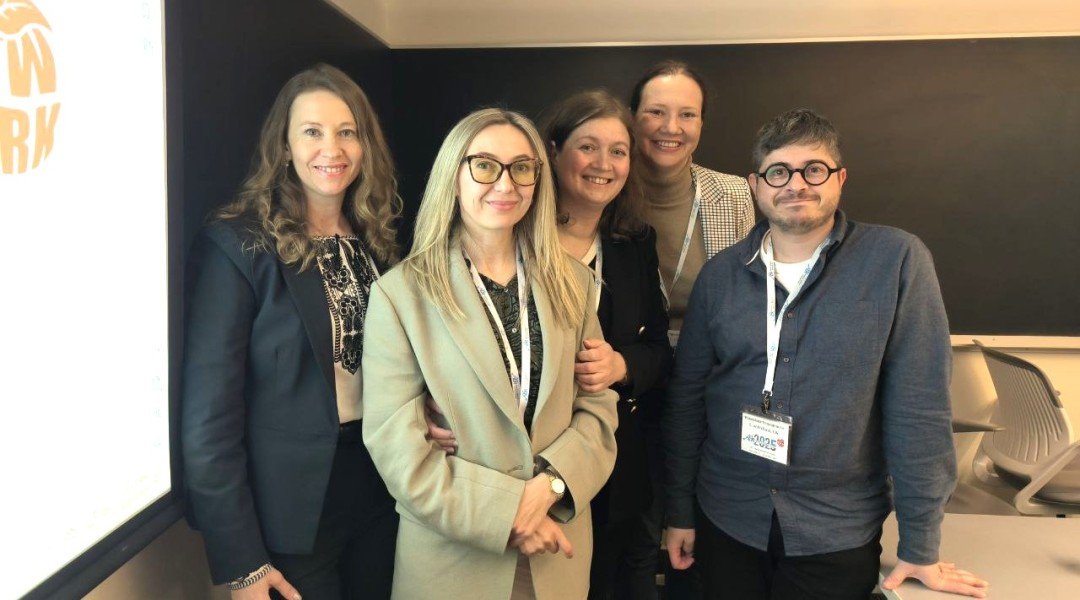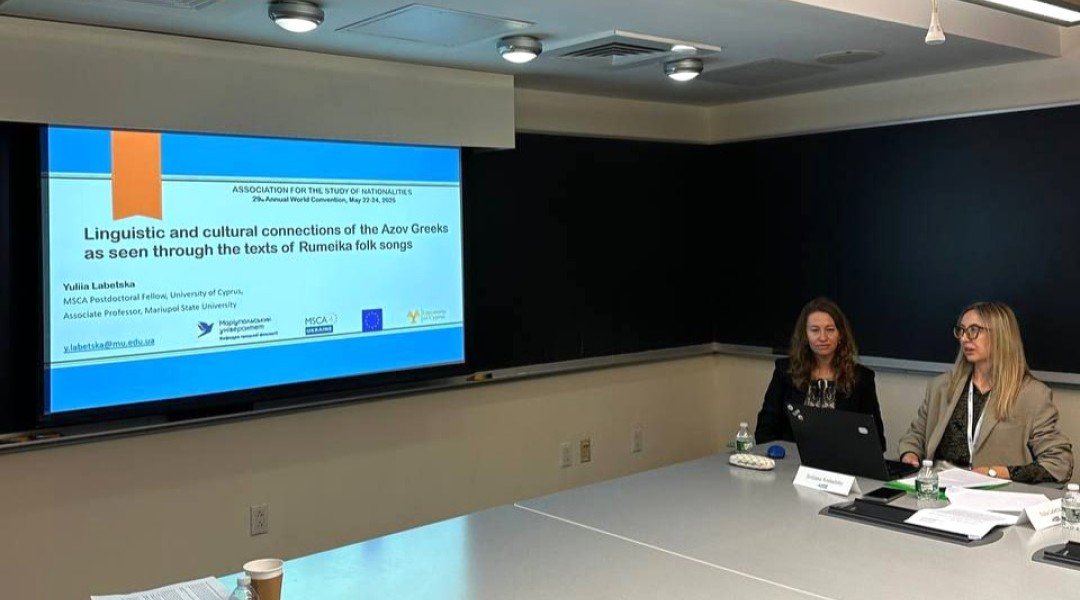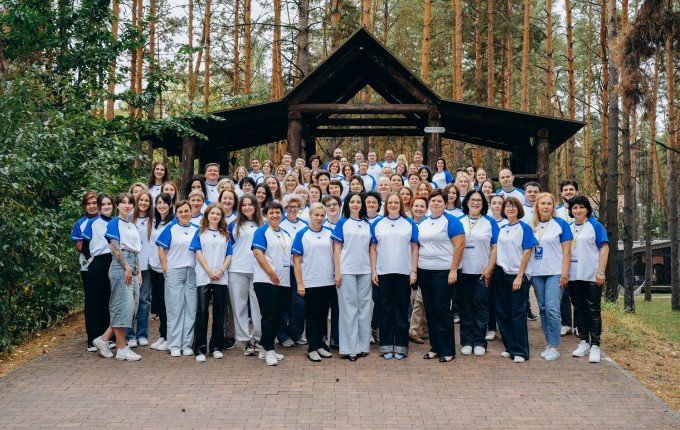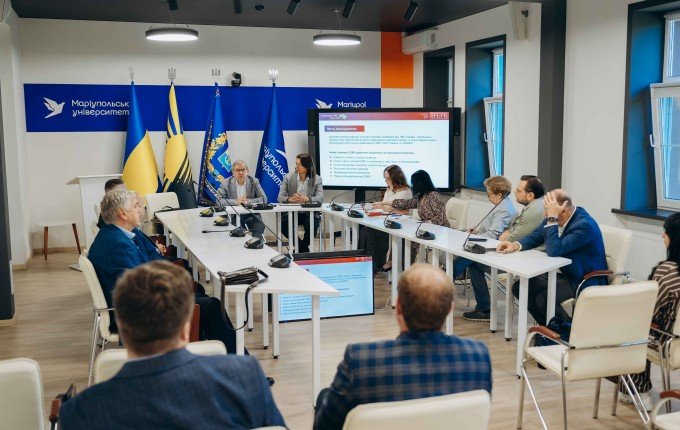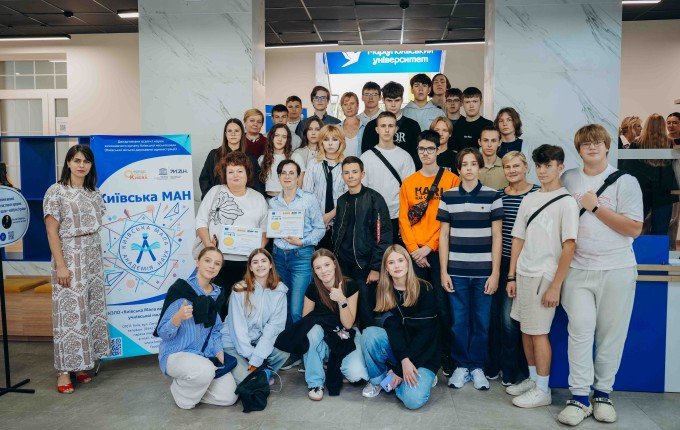History and Culture of Greeks of Ukraine Discussed at New York Congress
Amid the devastating war aimed not only at destroying infrastructure in Ukrainian territories but also at erasing the cultural and national identity of the people, the preservation of intangible heritage takes on special importance.
While abroad as visiting scholars at European universities, Head of the Department of Greek Philology Yuliia Labetska and Associate Professor of the Department of History and Archaeology Svitlana Arabadzhy focused their academic research on the Greek identity of the Azov region.
From May 22 to 24, the World Congress of the Association for the Study of Nationalities took place at Columbia University in New York. The event provided an excellent opportunity for MSU scholars to engage with colleagues on topics concerning the past and present of the Greeks of Ukraine.
The thematic panel was initiated by Associate Professor Svitlana Arabadzhy, whose proposal to dedicate one of the sessions to the Azov region was supported by the organizers. Her presentation explored the development of Mariupol as one of the key port cities in southern Ukraine and the significant role played by the Greek community in that process.
In her presentation, Associate Professor Yuliia Labetska used the example of Rumeika folk songs to explore the linguistic and cultural connections of the Greeks of the Azov region. She discussed how oral texts serve as carriers of collective memory, adaptation, and the search for identity. Labetska also highlighted the recent revival of interest in the Rumeika language among members of the Azov Greek community, especially under the conditions of forced displacement following 2022.
The panel attracted an audience that included ethnic Greeks, Armenians, and Americans. After the presentations, attendees asked the speakers about the historical ties between the Greeks from the island of
Chios and the Greeks of Mariupol, trade relations and their influence on the Mariupol community, the self-identification of the Azov Greeks, and their concept of homeland. There was also keen interest in the literary and folkloric creativity of the Hellenes.
